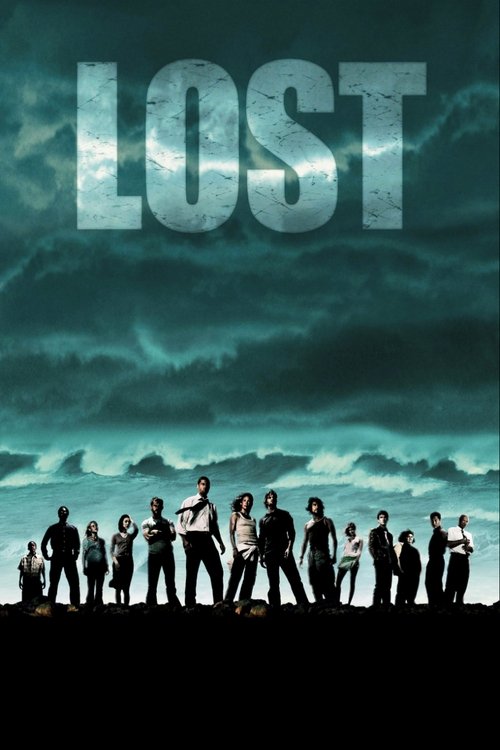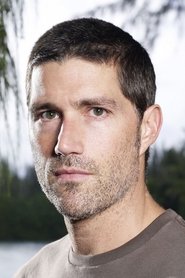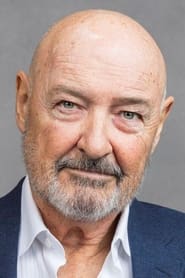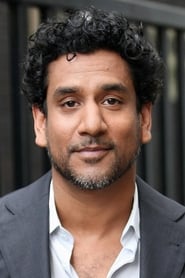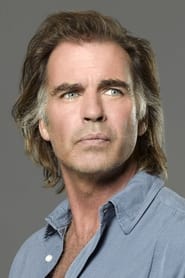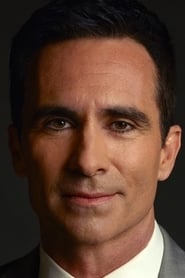
Ask Your Own Question
What is the plot?
The story begins with the crash of Oceanic Flight 815, which is en route from Sydney to Los Angeles. The plane encounters severe turbulence and breaks apart in mid-air, scattering debris and survivors across a mysterious tropical island. Among the survivors are Jack Shephard, a spinal surgeon; Kate Austen, a fugitive; Sawyer, a conman; John Locke, a man with a troubled past; and Hurley, who believes he is cursed due to winning the lottery.
In the immediate aftermath of the crash, Jack takes charge, attempting to organize the survivors and assess the situation. He tends to the injured, including a man named Seth who has a severe neck injury. Tensions rise as the group realizes they are stranded on an uninhabited island. They begin to search for food and water, and Jack, Kate, and Charlie venture into the jungle to find a source of fresh water.
As they explore, they hear strange noises in the jungle, which creates a sense of fear and uncertainty among the survivors. They discover a stream and manage to fill their water supply. Meanwhile, back at the crash site, Sawyer and other survivors begin to scavenge the wreckage for supplies. They find a stash of luggage and personal items, which leads to the first glimpses of their backstories through flashbacks.
The group begins to establish a camp near the beach, and Jack and Kate form a bond as they work together. Jack is haunted by his past, particularly his strained relationship with his father, which is revealed through flashbacks. The survivors hold a memorial for those who did not survive the crash, and tensions rise as they grapple with their new reality.
As days pass, the survivors face various challenges, including food shortages and the threat of the mysterious creature in the jungle. Jack, Kate, and Sawyer go on a supply run and encounter a wild boar, which they manage to catch. This moment strengthens their camaraderie, but also highlights the growing divide between those who want to be rescued and those who are adapting to life on the island.
The group discovers that they are not alone on the island when they encounter the "Others," a group of mysterious inhabitants. The first encounter occurs when a young boy named Walt is kidnapped by the Others, leading to a desperate rescue mission led by Jack, Sawyer, and Michael, Walt's father. This mission culminates in a confrontation with the Others, who are revealed to be more organized and dangerous than the survivors anticipated.
As the survivors continue to face internal conflicts, Jack's leadership is challenged by Locke, who believes in the island's mystical properties. Locke's backstory reveals his troubled past, including his relationship with his father, who betrayed him. This conflict between Jack and Locke sets the stage for deeper philosophical debates about faith and reason.
The survivors also discover a mysterious hatch in the ground, which becomes a focal point of their curiosity and fear. Jack and Locke have differing opinions on whether to open it, leading to further tension. Eventually, they manage to open the hatch, revealing a dark, industrial space filled with supplies and a computer with a countdown timer.
As the series progresses, the survivors' backstories are explored through flashbacks, revealing their motivations and secrets. Kate's fugitive past is revealed, as is Sawyer's quest for revenge against the man who wronged him. Jack's struggles with his father's death and his desire to save everyone on the island become central themes.
The group faces numerous challenges, including the introduction of new characters like Ana Lucia, a former police officer, and Libby, who has her own mysterious past. The dynamics within the group shift as alliances form and break, leading to conflicts that threaten their survival.
The tension escalates when the survivors learn more about the Others and their intentions. A significant confrontation occurs when the Others kidnap several survivors, including Jack, Kate, and Sawyer. Jack is subjected to psychological manipulation by Benjamin Linus, the leader of the Others, who reveals the complexities of their situation and the island's power.
As the story unfolds, the survivors' attempts to escape the island lead to various twists, including the discovery of a freighter nearby, which they believe may offer a way off the island. However, the freighter is revealed to be connected to the mysterious organization known as Charles Widmore, who has his own agenda regarding the island.
The series culminates in a series of dramatic events, including the return of characters thought to be dead, the revelation of the island's true nature, and the ultimate fate of the survivors. The narrative weaves together themes of redemption, sacrifice, and the struggle for survival, leading to a conclusion that leaves many questions unanswered and explores the complexities of human relationships in the face of adversity.
What is the ending?
In the series finale of "Lost," the survivors of Oceanic Flight 815 confront their pasts in a church setting, leading to their eventual acceptance of their fate. As memories resurface, it becomes clear they have died and are now at a point of moving on together.
In the expanded narrative, the final episodes unfold with the tension rising on the island as the conflict between the living characters and the Man in Black, who has taken on the form of John Locke, intensifies. Jack Shephard emerges as the reluctant leader tasked with stopping the Man in Black from escaping the island.
The scene shifts to a confrontation at the Heart of the Island, where Jack, Kate, Sawyer, Jin, and Hurley must make crucial decisions. Jack understands that the source of the island's power must be protected. In a bid for survival, Kate participates alongside Jack, showcasing the relationships developed throughout their time on the island.
Meanwhile, in the "flash-sideways" narrative arc, the audience sees an alternate reality where the characters experience life without the crash. This reality serves as a vehicle for their individual journeys of self-discovery, revealing how their struggles have shaped them. In these moments, characters like Locke, Ben, and Hurley revisit their past traumas, learning lessons that lead them to a state of acceptance.
As events unravel, Jack confronts the Man in Black in a climactic battle. The struggle emphasizes Jack's determination to save the island, tying back to his character's growth since the beginning of the series. The battle culminates with Jack sacrificing himself to ensure that the island remains protected, and as he lies dying, he shares a poignant farewell with Kate.
The narrative then switches back to the church, where the characters, devoid of their prior lives, gather for a purpose that becomes increasingly clear. They remember their shared experiences and acknowledge the connections forged under dire circumstances. Each character's acceptance of their past leads to a moment of clarity and peace as they prepare to move on together.
The series concludes as Jack, lying in the bamboo grove where he first awoke, closes his eyes, drawing parallels to the pilot episode. In the church, the characters embrace and find comfort in their united journey, reinforcing the show's themes of redemption, connection, and the importance of relationships formed in life. Ultimately, the ensemble stands together, ready to embrace the unknown that lies ahead, solidifying their journey into the afterlife.
Is there a post-credit scene?
The TV show "Lost," which aired from 2004 to 2010, does not have a post-credit scene in the traditional sense that many films do. However, the series finale, titled "The End," features a significant closing sequence that serves as a poignant conclusion to the characters' journeys.
In the final moments of the episode, after the resolution of the main storyline, the scene shifts to a church where several key characters gather. The atmosphere is serene and filled with a soft, warm light. Jack Shephard, played by Matthew Fox, is seen lying on the ground in the jungle, having just succumbed to his injuries after a final confrontation with the Man in Black. As he takes his last breaths, the camera pans up to the sky, and the iconic sound of the island's whispers fills the air.
The scene transitions to the church, where Jack's father, Christian Shephard, explains to the gathered characters that they are all dead and that the church is a place for them to find one another and move on together. The emotional weight of this revelation is palpable, as characters like Kate, Sawyer, Hurley, and Sayid come to terms with their pasts and the connections they forged on the island.
The finale concludes with a powerful image of Jack's eye closing, mirroring the opening scene of the series, creating a full-circle moment that encapsulates the themes of life, death, and redemption that permeate the show. The emotional resonance of this scene lingers, leaving viewers with a sense of closure and reflection on the characters' journeys.
While there are no traditional post-credit scenes, the finale's closing moments serve as a profound and reflective conclusion to the series, encapsulating the essence of "Lost."
What is the significance of the numbers 4, 8, 15, 16, 23, and 42 in Lost?
The numbers 4, 8, 15, 16, 23, and 42 are a recurring motif throughout Lost, appearing in various contexts and affecting multiple characters. They are first introduced when Hurley, a lottery winner, believes the numbers are cursed after he uses them to win the lottery, leading to a series of unfortunate events in his life. The numbers are also found on the hatch that the survivors discover on the island, which they must enter to prevent a catastrophic event. The significance of the numbers deepens as they are linked to the island's mysterious properties and the Dharma Initiative, suggesting a larger, interconnected narrative that influences the fates of the characters.
What is the backstory of John Locke and how does it influence his character on the island?
John Locke's backstory reveals a complex character shaped by abandonment and a desire for purpose. Raised by a con artist, he was given up for adoption and faced a troubled childhood. As an adult, he was paralyzed from the waist down, which left him feeling powerless and searching for meaning in life. When he arrives on the island, he miraculously regains the ability to walk, which he interprets as a sign of the island's mystical properties. This transformation fuels his belief in the island's significance and his role as a protector, leading him to clash with other survivors, particularly Jack, who represents a more scientific approach to their situation.
How does the relationship between Jack Shephard and Kate Austen evolve throughout the series?
Jack Shephard and Kate Austen's relationship is marked by tension, attraction, and emotional complexity. Initially, Jack is focused on survival and leadership, while Kate is a fugitive with a mysterious past. Their bond deepens as they face life-and-death situations together, with Jack often trying to save Kate from her own self-destructive tendencies. As the series progresses, their romantic feelings become more apparent, leading to moments of intimacy and conflict. Jack's commitment to rescuing the group often clashes with Kate's desire for freedom and independence, creating a push-and-pull dynamic that reflects their individual struggles and growth.
What role does Benjamin Linus play in the series and how does his character develop?
Benjamin Linus is introduced as a manipulative and enigmatic leader of the Others, a group of island inhabitants. His character is marked by cunning intelligence and a willingness to do whatever it takes to protect the island and his people. As the series unfolds, Ben's backstory reveals his troubled childhood and complex relationships, particularly with his father, which shape his ruthless nature. His interactions with the main characters, especially with John Locke and Jack Shephard, highlight his ability to manipulate situations to his advantage. Ben's motivations often blur the lines between villain and anti-hero, as he occasionally shows vulnerability and a desire for redemption, particularly in his later interactions with the survivors.
What is the significance of the island itself and how does it affect the characters?
The island in Lost serves as a character in its own right, imbued with mysterious properties that profoundly affect the survivors. It is a place of healing, as seen with John Locke's regained ability to walk and Rose's cancer remission. However, it also harbors dark secrets, including the Smoke Monster and the Dharma Initiative's experiments. The island's unique qualities challenge the characters' beliefs, forcing them to confront their pasts and make choices that define their futures. The island's influence creates a sense of purpose for some, like Locke, while instilling fear and confusion in others, like Jack, who struggles to understand its significance. Ultimately, the island acts as a catalyst for transformation, revealing the characters' true selves.
Is this family friendly?
"Lost" is generally not considered family-friendly due to its complex themes and some mature content. Here are some potentially objectionable or upsetting elements that may be present in the show:
-
Violence: There are several scenes that depict physical confrontations, injuries, and deaths. Some characters are killed in graphic ways.
-
Mature Themes: The show deals with heavy themes such as death, loss, betrayal, and existential questions that may be difficult for children to understand.
-
Strong Language: There are instances of profanity throughout the series.
-
Substance Abuse: Some characters struggle with addiction, which may not be appropriate for younger audiences.
-
Sexual Content: There are scenes that involve sexual situations and innuendos, which could be considered inappropriate for children.
-
Psychological Tension: The show often incorporates psychological distress, trauma from the characters' backstories, and tense situations, which may be upsetting for sensitive individuals.
Overall, "Lost" is best suited for a mature audience and may not be suitable for children or those who are easily disturbed by intense themes.
Does the dog die?
In the TV show "Lost," the character Vincent, a dog, does not die. Vincent has a significant presence throughout the series and is often seen with the main characters, notably Walt.

